
-
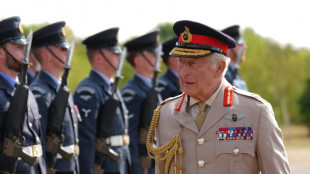 UK king, Starmer lead VJ Day tributes to WWII veterans, survivors
UK king, Starmer lead VJ Day tributes to WWII veterans, survivors
-
South Korean president vows to build 'military trust' with North

-
 Macron vows to punish antisemitic 'hatred' after memorial tree cut down
Macron vows to punish antisemitic 'hatred' after memorial tree cut down
-
Hodgkinson happy to be back on track ahead of Tokyo worlds

-
 Deadly monsoon rains lash Pakistan, killing dozens
Deadly monsoon rains lash Pakistan, killing dozens
-
Frank urges 'real' Spurs fans to back Tel after racist abuse
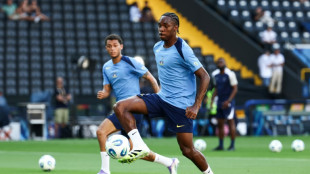
-
 Japan's emperor expresses 'deep remorse' 80 years after WWII
Japan's emperor expresses 'deep remorse' 80 years after WWII
-
Chelsea boss Maresca eager to sign new defender as Colwill cover

-
 Liverpool target Isak controls his Newcastle future: Howe
Liverpool target Isak controls his Newcastle future: Howe
-
New-look Liverpool kick off Premier League season after spending spree

-
 Football and falls as first humanoid robot games launch in China
Football and falls as first humanoid robot games launch in China
-
'Like hell': Indoor heat overwhelms Saudi Arabia's cooks, bakers

-
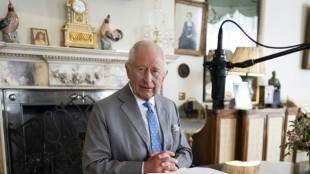 On VJ day, king pays tribute to UK veterans, warns of war's 'true cost'
On VJ day, king pays tribute to UK veterans, warns of war's 'true cost'
-
Stocks mostly higher before US-Russia summit
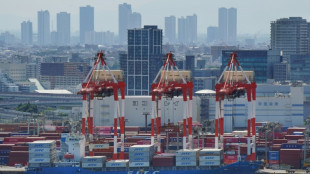
-
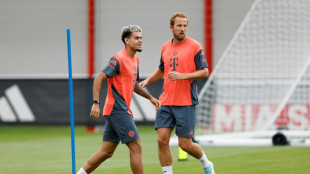 Bayern's Bundesliga crown up for grabs after rocky summer
Bayern's Bundesliga crown up for grabs after rocky summer
-
Arsenal face revamped Man Utd as new-look Liverpool open Premier League season
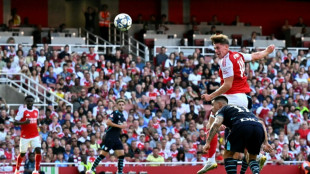
-
 South Korea president vows to build 'military trust' with North
South Korea president vows to build 'military trust' with North
-
'Never again': Indigenous Bolivians sour on socialism

-
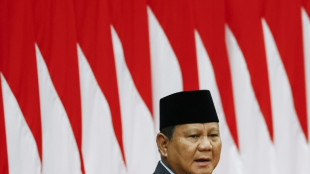 Indonesia's president touts economy, social welfare drive
Indonesia's president touts economy, social welfare drive
-
World plastic pollution treaty talks collapse with no deal

-
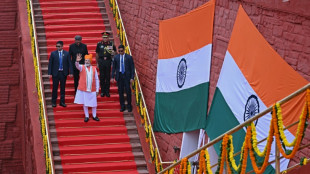 Facing US tariffs, India's Modi vows self-reliance
Facing US tariffs, India's Modi vows self-reliance
-
Trump to meet Putin in high-stakes Alaska summit

-
 Indian rescuers scour debris after 60 killed in flood
Indian rescuers scour debris after 60 killed in flood
-
Ivory Coast village reburies relatives as rising sea engulfs cemetery
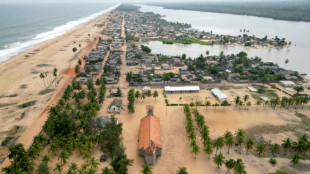
-
 Stressed UK teens seek influencers' help for exams success
Stressed UK teens seek influencers' help for exams success
-
National Guard deploys 800 personnel for DC mission, says Pentagon
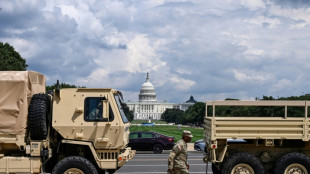
-
 Japan emperor expresses 'deep remorse' 80 years after WWII
Japan emperor expresses 'deep remorse' 80 years after WWII
-
With waters at 32C, Mediterranean tropicalisation shifts into high gear
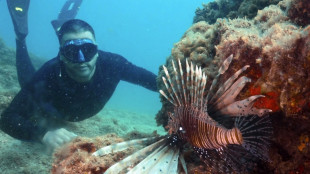
-
 Historic Swedish church being moved as giant mine casts growing shadow
Historic Swedish church being moved as giant mine casts growing shadow
-
Malawi's restless youth challenged to vote in September polls

-
 Indonesian roof tilers flex muscles to keep local industry alive
Indonesian roof tilers flex muscles to keep local industry alive
-
World's first humanoid robot games begin in China

-
 Scott Barrett returns to lead All Blacks against Argentina
Scott Barrett returns to lead All Blacks against Argentina
-
Five things to know about Nigeria's oil sector
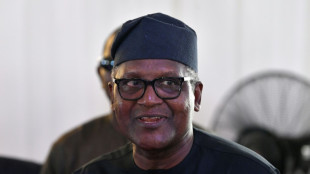
-
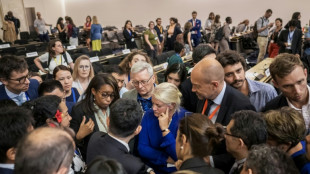 New compromise but still no deal at plastic pollution talks
New compromise but still no deal at plastic pollution talks
-
France's Cernousek seizes lead at LPGA Portland Classic
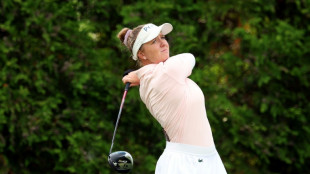
-
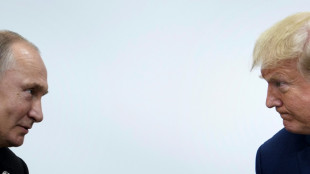 Putin-Trump summit: What each side wants
Putin-Trump summit: What each side wants
-
Desperate Myanmar villagers scavenge for food as hunger bites

-
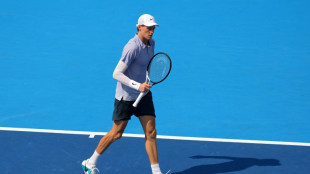 Qualifier Atmane stuns Rune to set up Sinner semi-final in Cincinnati
Qualifier Atmane stuns Rune to set up Sinner semi-final in Cincinnati
-
Hong Kong tycoon Jimmy Lai's security trial delayed over health concerns
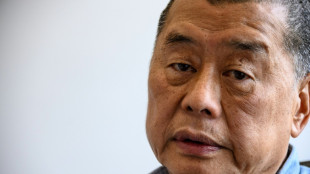
-
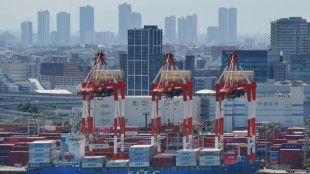 Asia stocks mixed before US-Russia summit
Asia stocks mixed before US-Russia summit
-
Putin hails North Korean troops as 'heroic' in letter to Kim
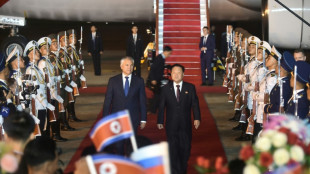
-
 Fleeing the heat, tourists explore Rome at night, underground
Fleeing the heat, tourists explore Rome at night, underground
-
Online cockfighting thrives in Philippines despite ban and murders
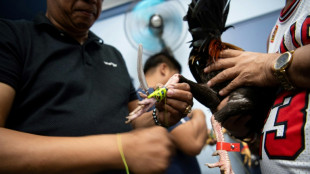
-
 Keeping cool with colours -- Vienna museum paints asphalt to fight heat
Keeping cool with colours -- Vienna museum paints asphalt to fight heat
-
Raising the bar: Nepal's emerging cocktail culture

-
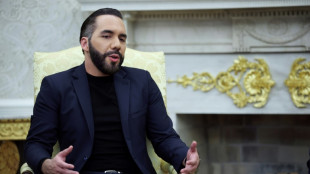 El Salvador plans 600 mass trials for suspected gang members
El Salvador plans 600 mass trials for suspected gang members
-
Trump's tariffs drown Brazil's fish industry
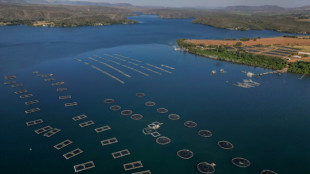
-
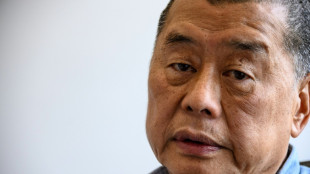 Hong Kong tycoon Jimmy Lai's collusion trial resumes after delay
Hong Kong tycoon Jimmy Lai's collusion trial resumes after delay
-
Britain's Princess Anne turns 75 with typically minimal fuss
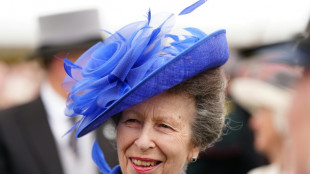

Trump tariffs weigh on Germany as institutes cut forecasts
Leading economic institutes Thursday slashed their 2025 growth forecast for Germany to near stagnation, warning Europe's struggling top economy will face extra pain from US President Donald Trump's tariff blitz.
The six think-tanks, in their latest joint forecast, now predict GDP growth of just 0.1 percent for 2025, down from the 0.8 percent expansion they forecast in September.
For 2026 they forecast growth of 1.3 percent, unchanged from September.
"The geopolitical tensions and the protectionist trade policy of the USA are exacerbating the already tense economic situation in Germany," said Torsten Schmidt, head of research at the RWI-Leibniz Institute for Economic Research.
The downgrade comes the day after the French and Italian governments cut their growth forecasts for the year, citing new barriers to trade, while Spain warned that its growth would suffer, without giving a figure.
Trump's tariffs on aluminium, steel and vehicle imports that came into effect in March and April would likely reduce Germany's economic growth by 0.1 percentage points each for 2025 and 2026, the institutes calculated.
Additional "reciprocal" tariffs announced by the United States on April 2 could double the hit, the institutes said, though they warned that it was difficult to quantify the effect.
Those tariffs were paused for most countries on Wednesday.
The United States was Germany's top trading partner last year and a major market for its exports, ranging from cars to machinery and chemicals.
Adding to its problems, Germany faces a range of deep-seated structural issues including a shortage of skilled workers, increased competition from China and stifling taxes and bureaucracy, the institutes warned.
"These cannot be solved by simply increasing government spending, and make reforms to boost potential output all the more urgent," they said in a statement.
The German government's latest official forecast, released in January, estimates the economy will grow by 0.3 percent for the year. It will present a new forecast on April 24.
- Grim reading for Merz -
The figures make grim reading for Germany's chancellor-in-waiting, Friedrich Merz, who on Wednesday presented a coalition agreement between his centre-right CDU/CSU and the leftist SPD, paving the way for him to take power next month.
A key challenge for the incoming government is reviving Germany's economy, which has shrunk for the past two years due to a manufacturing slump and weak demand in key markets, as well as rising competition from China.
"China is competing with us on the global markets for products where we believed -- for many, many decades -- we were the only ones who could make them so well," said Timo Wollmershaeuser, head of the Ifo institute, one of the think-tanks which produce the forecasts.
Even before taking office, Merz has taken some steps, including by pushing through parliament changes to Germany's so-called "debt brake", which restricts government borrowing and has been criticised for holding back much-needed investment.
The move allows potentially unlimited government borrowing for defence. He also won parliamentary approval for a 500-billion-euro ($552-billion) fund to spend on renovating Germany's creaking infrastructure in the coming years.
Many economists hope the additional investment will help get Germany's economy back on its feet, and the think-tanks calculated it would boost growth by 0.5 percentage points over the next year, assuming an extra 24 billion euros in government spending.
But the coalition's plans also faced criticism, with economists saying the government was dodging the task of tough structural reforms that be costly in the short term but boost growth over the longer term.
"The coalition agreement between the CDU/CSU and SPD is a compromise that largely maintains the status quo," said Marcel Fratzscher, head of the German Economic Institute for Economic Research (DIW).
"The CDU/CSU and SPD have not yet recognised the urgency of the current crisis situation and remain unambitious in many areas."
F.AbuShamala--SF-PST

